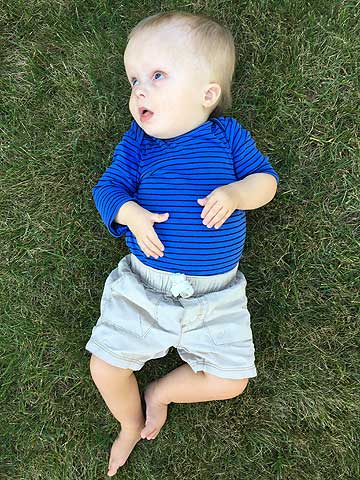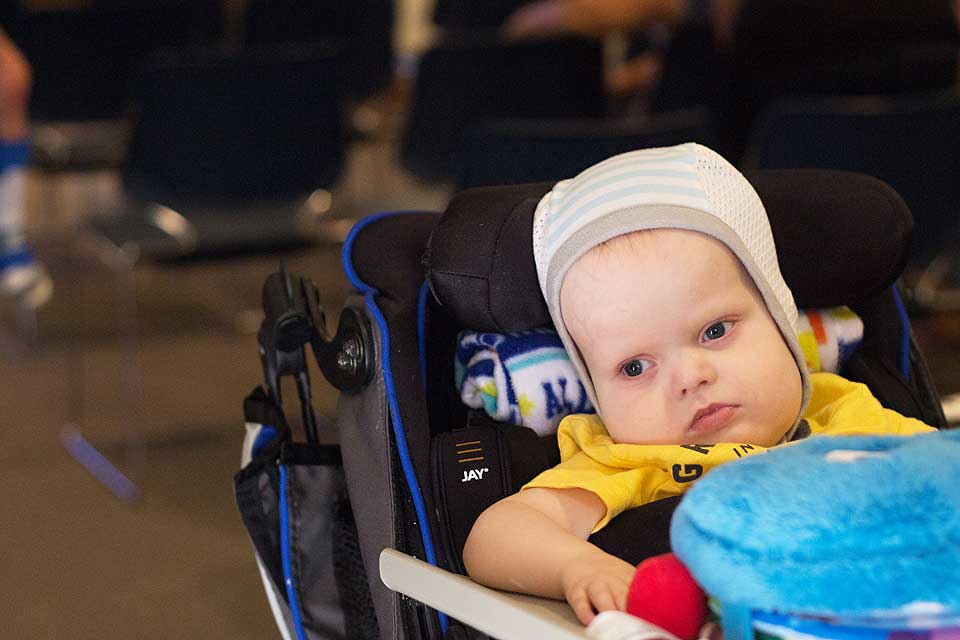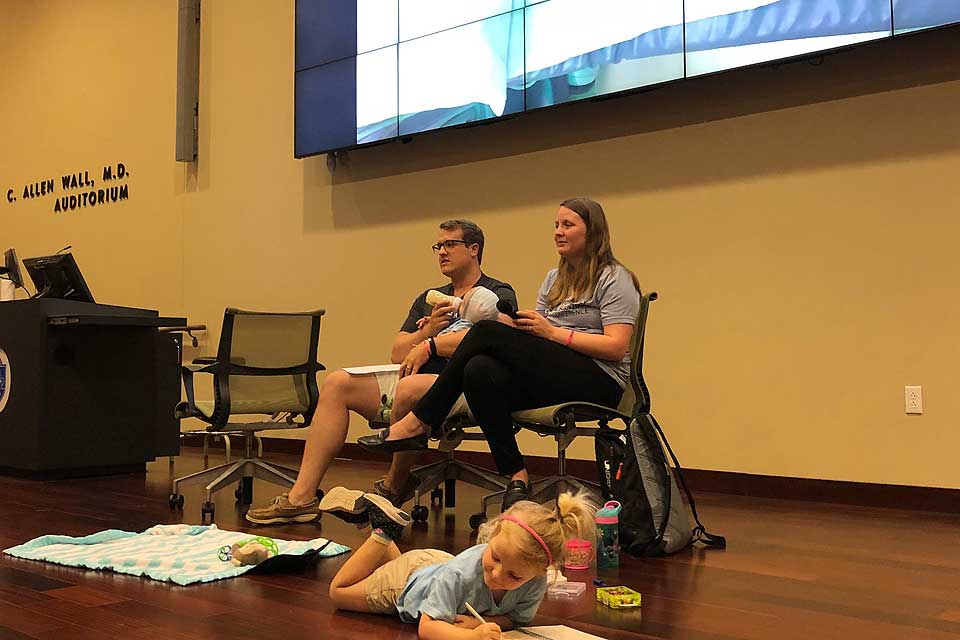#PauseForPBD: A SLU Doctoral Student Shares His Son's Journey
I pause for Hans.
Friday, Oct. 5, is the global awareness day for Peroxisome Biogenesis Disorders, and my son, Hans, has Peroxisome Biogenesis Disorder-Zellweger Spectrum Disorder (PBD-ZSD).
No parent can prepare for a diagnosis like this. However, as a doctoral student in theology and health care ethics at Saint Louis University, I am in a unique situation. Before we learned my son’s diagnosis, I approached this field as an academic. After the diagnosis, everything changed.
I began my doctoral studies in theology and health care ethics at SLU in the fall of 2016. Having a background in philosophy, my interests centered around Thomistic metaphysics, particularly the debate on brain death within Catholic thought. Throughout my first year in the program, I was set on applying for academic jobs. But all of this changed as I began my second year in the program.
My wife and I welcomed our son, Hans, into the world during the summer of 2017. While we held our perfect son for the first time, we heard the doctors voice concerns about dysmorphic features, hypotonia, and a failed hearing test. The coming weeks brought much anxiety as we were confused by the concern of our doctors contrasted by the fact that Hans was doing well. The stress of those first two months was countered by the hope that everything—his hearing loss, dysmorphic features, and hypotonia—was simply a coincidence. This hope quickly faded away shortly after our first visit with SLUCare geneticists at SSM Health Cardinal Glennon Children’s Hospital, when we learned that our son has a genetic disorder called PBD-ZSD.
PBD-ZSD is a rare, genetic disorder that affects all organ systems of the body. Peroxisomes are organelles in cells that are involved in many essential metabolic pathways. In PBD-ZSD, these peroxisomes can be absent, reduced in number, or not functioning properly, resulting in a spectrum of clinical issues. There is no effective treatment or cure for this disorder.
PBD-ZSD affects approximately one in 50,000 live births and while the exact number of individuals affected by this disorder is unknown, a few hundred families are currently connected through the Global Foundation for Peroxisomal Disorders (GFPD).

PBD-ZSD is a spectrum disorder; those on the severe end of the spectrum usually pass away before their first birthday, while those on the milder side can survive childhood and, in some instances, into early adulthood. We think Hans is somewhere in the middle, but we just don’t know. Like many of the children affected by PBD-ZSD, Hans has sensorineural hearing loss, cortical vision impairment, low muscle tone, global developmental delays, and has difficulty eating food and gaining weight.
Hans was diagnosed with PBD-ZSD at 3 months old, and while we had to foreclose on the hope it was all coincidence early on, we avoided the diagnostic odyssey so many families live through in rare disease communities. Now 15 months old, Hans continues to do well. This is largely due to the resources we have here in St. Louis. Hans currently sees nine doctors regularly—all of whom are located at Cardinal Glennon.
In addition to his fantastic medical team, four therapists visit Hans in home each week through Missouri First Steps. For audiology and speech therapy, we go to St. Joseph Institute for the Deaf, where we visit an audiologist monthly and an SLP works with Hans every week. At Delta Gamma Center for Children with Vision Impairments, we see a therapist weekly who helps us find creative ways to work on what little vision Hans has.
But our greatest resource has been other families affected by PBD-ZSD. The GFPD is a non-profit foundation that supports families like ours by organizing national conferences, regional meet-ups, support groups and medical equipment exchange. This foundation promotes and funds research on PBD-ZSD, including recent projects on animal models and foundational gene therapy research.
Recently, my wife and I spoke to SLU medical students about Hans and PBD-ZSD. Being able to talk about something so personal to a group of future physicians was an incredible experience. We are grateful for the opportunity, and we realize that not many families affected by rare diseases have such platforms to speak from. But since we are a part of the SLU and St. Louis communities, we are fortunate to be able to tell Hans’ story so that future clinicians and researchers might be touched by Hans in some small way, hopefully leading to increased interest in PBD-ZSD and other rare diseases.
Since my son’s birth, my own research interests gravitated towards genetic counseling and other issues in genetics—even my career goals shifted from academia to working in Catholic health care. Rather than let this diagnosis remain a tragic fact and perpetually carry negative connotations, I try to find new ways to let my son influence my writing, my teaching, my thinking, and my future so that I can do something.
I cannot take away Hans’ disorder, but I hope to bring about as much good as possible from it.
If you would like to follow Hans’ story, please join our private Facebook group, Hope for Hans. For more information about PBD-ZSD, or to donate to the GFPD, please visit www.thegfpd.org.
Christopher Ostertag is a doctoral student in Theology and Health Care Ethics at Saint Louis University.



















